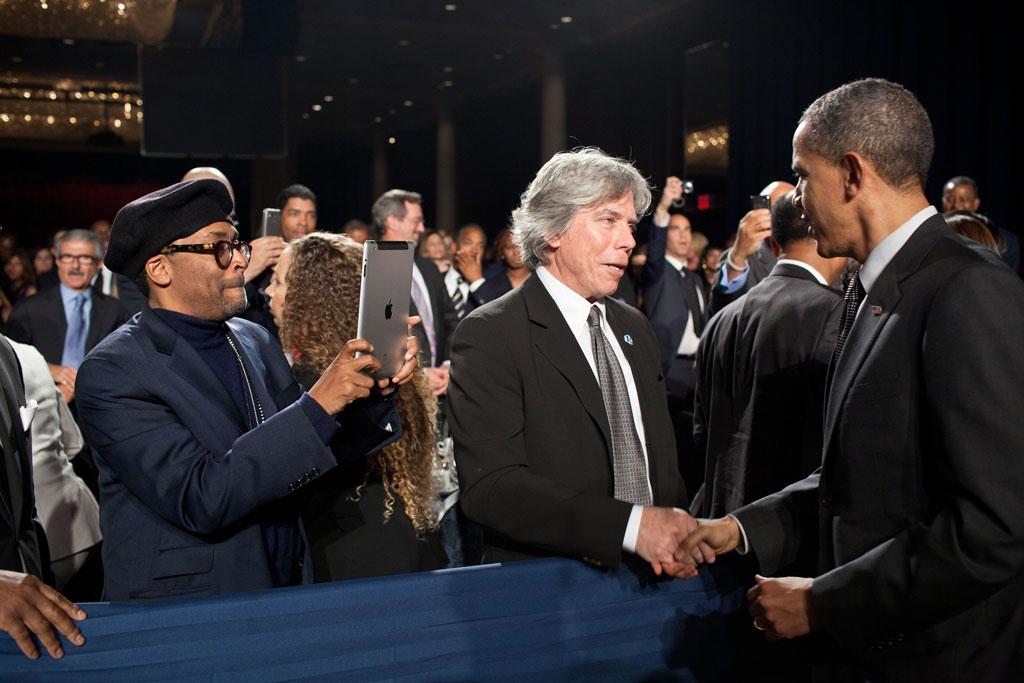Our mobile devices make sharing the minutiae of our daily lives as simple as a single tap. A new social network appears, we sign up, tap through to the confirmation screen without reading a single word, and suddenly we’re transported to a world where every photo we’ve taken looks like it was shot by the love-child of Quentin Tarantino and J.J. Abrams.
And then one day, that same social network comprised of black-and-white pictures of artisanal lattes makes an inconsequential and logical change to the existing terms of service, thus setting off a chain of incensed blog posts proclaiming the end of days.
The culprit in question is Instagram and here’s the updated legal jargon it recently hoisted upon users:
To help us deliver interesting paid or sponsored content or promotions, you agree that a business or other entity may pay us to display your username, likeness, photos (along with any associated metadata), and/or actions you take, in connection with paid or sponsored content or promotions, without any compensation to you.
This legalese sounds ominous and “Draconian,” but it’s actually not too far from Facebook’s own terms of service:
Facebook Ads are sometimes paired with social actions your friends have taken. For example, an ad for a sushi restaurant may be paired with a news story that one of your friends likes that restaurant’s Facebook page.
This is the same type of news story that could show up in your News Feed, only we place it next to a paid advertisement to make that ad more relevant and interesting.
The things you share and “Like” on Facebook can influence the ads you receive in your timeline, as well as be used by advertisers to promote their own products or services.
At least Nilay Patel at The Verge took the time to sift through Instagram’s legalese and provide a clear picture of the situation:
The new terms actually make things clearer and — importantly — more limited. That “on, about, or in conjunction” with language is dead and gone. Now you’re only agreeing that someone else can pay Instagram to display your photos and other information only in connection with paid or sponsored content. These phrases have very specific meanings — Instagram can’t sell your photos to anyone, for example.
But by the time his explanation was published, it was too late. The pandemic had already spread to a sensationalistic tech media that didn’t read Instagram’s terms of service the first time.
Once again, Nilay Patel:
Instagram has always had the right to use your photos in ads, almost any way it wants. We could have had the exact same freakout last week, or a year ago, or the day Instagram launched.
Every time a company makes changes to how they handle user data, all hell breaks loose and outrage spreads across the other social networks like an STD of crazy.
But why? Why do we get so upset about every little modification to the terms of use for services we don’t actually pay for?
Part of the problem stems from a fear of change. We get used to our timelines looking a certain way and how our photos are shared with our followers.
We became comfortable with Instagram as our preferred method of sharing our photos from our iPhones, but then the filters changed and they weren’t as good as what we had before.
After that came the Android app and suddenly iPhone users weren’t the cool kids anymore — even Phil Schiller closed his account.
Finally, Facebook bought the company for $1 billion and many users thought that was the end of Instagram. Zuckerberg was going to absorb the team, kill the apps, and build the filters into Facebook. That didn’t happen, but it didn’t stop paranoid and angry blog posts from being written.
Fear wasn’t the only thing fueling paranoid bloggers. There was also a feeling of betrayal. It was us, the users, who had made Instagram a $1 billion success. We uploaded photographs of our lattes adorned with lens flares and shared them on Twitter. It didn’t matter that we weren’t paying for it because this is the Internet and everything good should be free because exposure and open and bits.
It was this kind of mentality that led to angry, entitled articles like the one by Nathan Bransford at CNet:
WordPress shouldn’t be able to publish books pulled from people’s blogs. The makers of canvas and paint don’t own a painting. Providing the platform shouldn’t mean the company then owns and profits from the creation.
You may not think much of your friend’s pet photos. You may even think Instagram is a bastion of hipster artistes who are getting their just deserts (filtered in Lo-Fi, natch). But if there’s money to be made directly off of someone’s content, it should accrue to the creator.
The whole “slippery slope” argument regarding social networks is a non-starter. First, WordPress makes its money from third-party advertising on its free sites and from the users who pay for additional upgrades and services. WordPress isn’t self-publishing minimal linked-lists for the Amazon Kindle.
Secondly, how is a company that refuses to accept payments from users supposed to make money? Instagram did not offer paid accounts as an option and as much as we would’ve loved to have handed over our credit cards for a premium version of the service, it was never going to happen. The only two options were to either get bought by a bigger company or introduce ads to the service. Instagram (with Facebook’s help) did both.
The feeling of betrayal is understandable for about five seconds, and then it’s simply petty and childish. This was a “free” photo sharing service with no income other than what was provided through venture capital investments. It was also another social network in a long line of social networks that clearly stated its intentions for user-generated content with regard to advertising and monetization. Terms of service exist for a reason and those who choose to skip them (or pull quotes out of context) and click “Accept” have no right to complain.
But lo, what light through yonder Lo-Fi filter breaks? It is a blog post from Instagram co-founder Kevin Systrom clarifying the new terms for the people who didn’t take the time to read them the first time:
The language we proposed also raised question about whether your photos can be part of an advertisement. We do not have plans for anything like this and because of that we’re going to remove the language that raised the question.
This sounds like a cop-out, an appeasement to a few angry bloggers who (once again) blew the situation out of proportion and published their panicky FUD without getting their facts straight.
But, regardless, it’s a clear answer to a non-problem stirred up by the tech media. So, place your pitchforks and torches on the ground and go back to your homes. There’s nothing more to see here. You got what you wanted: An apology from a company that gave you something for nothing, then dared to make money from it. How awful of Instagram to think it had any right to do such an evil thing as monetize its business in order to sustain itself.
I forgot that on the Internet, no one likes ads and no one wants to pay for what they use. That must be why there are so many startups operating out of the kindness of their hearts.






